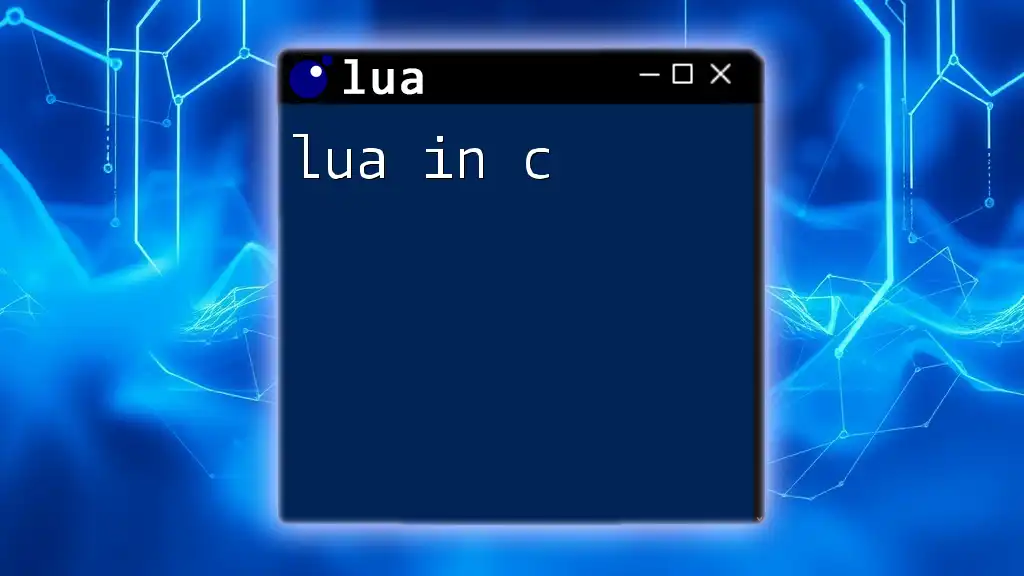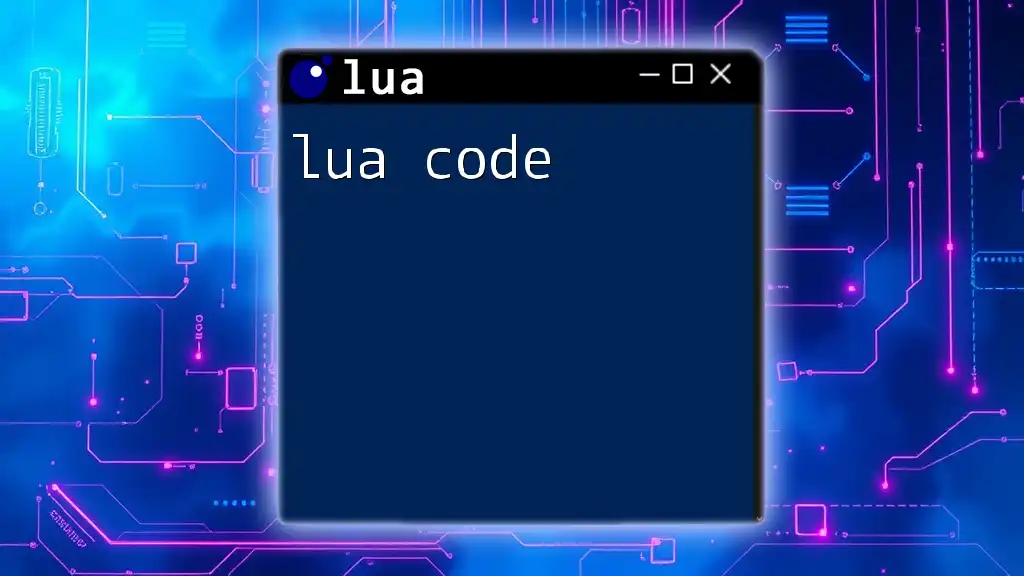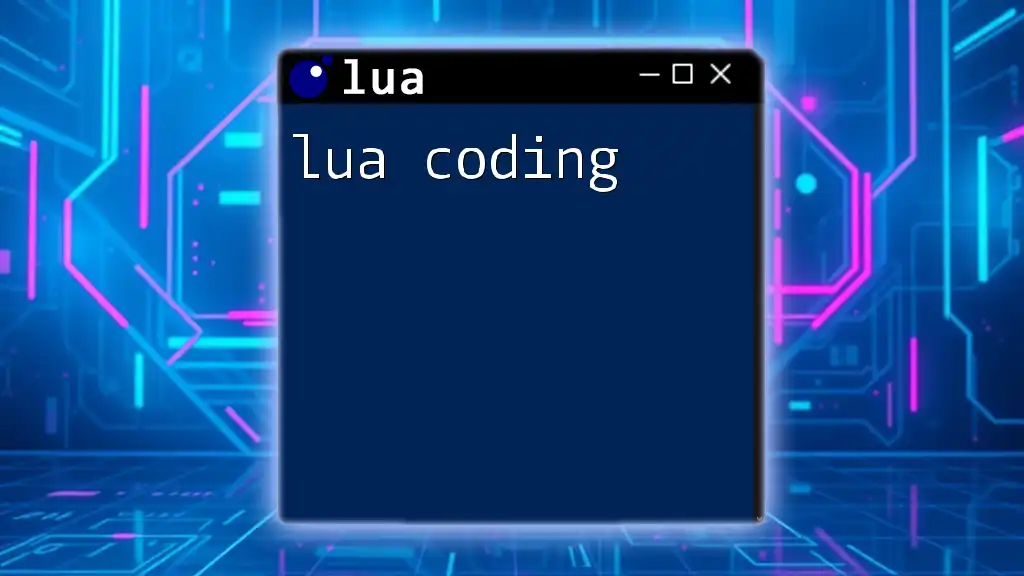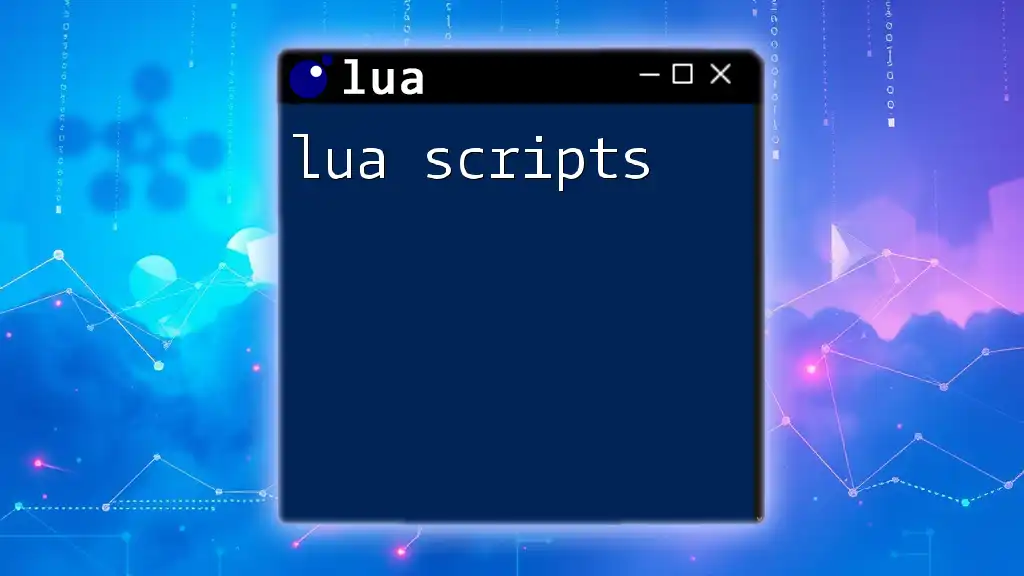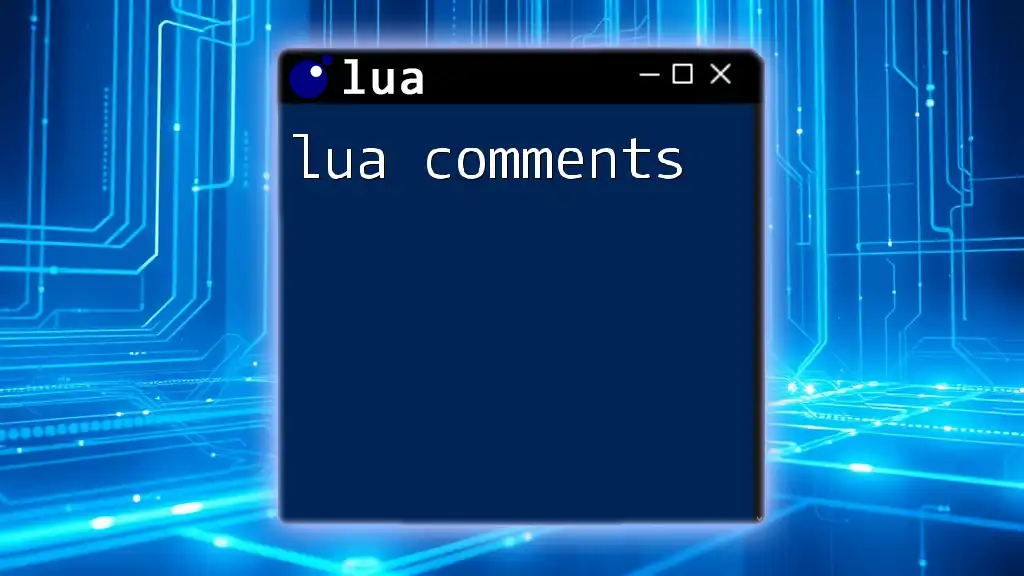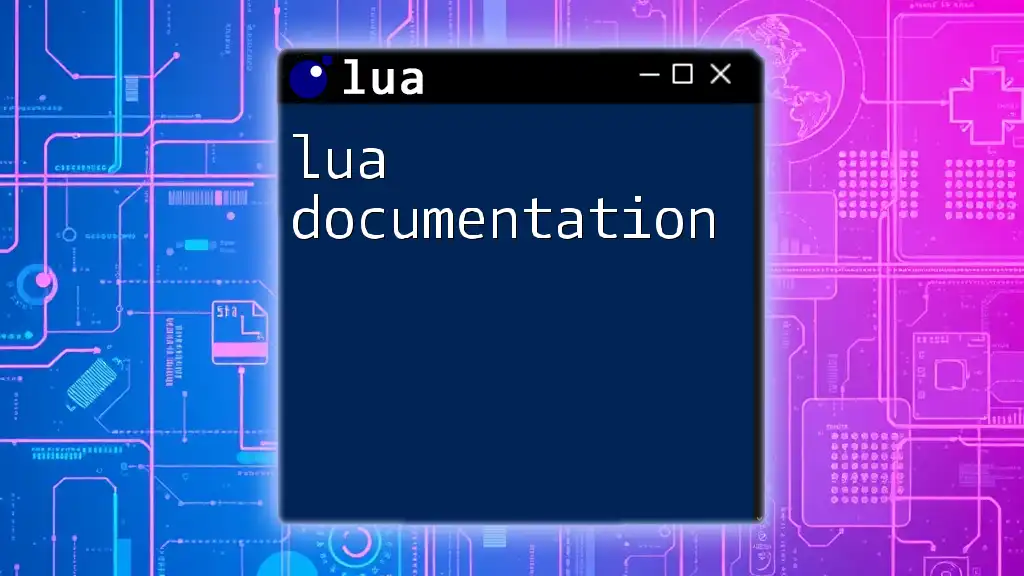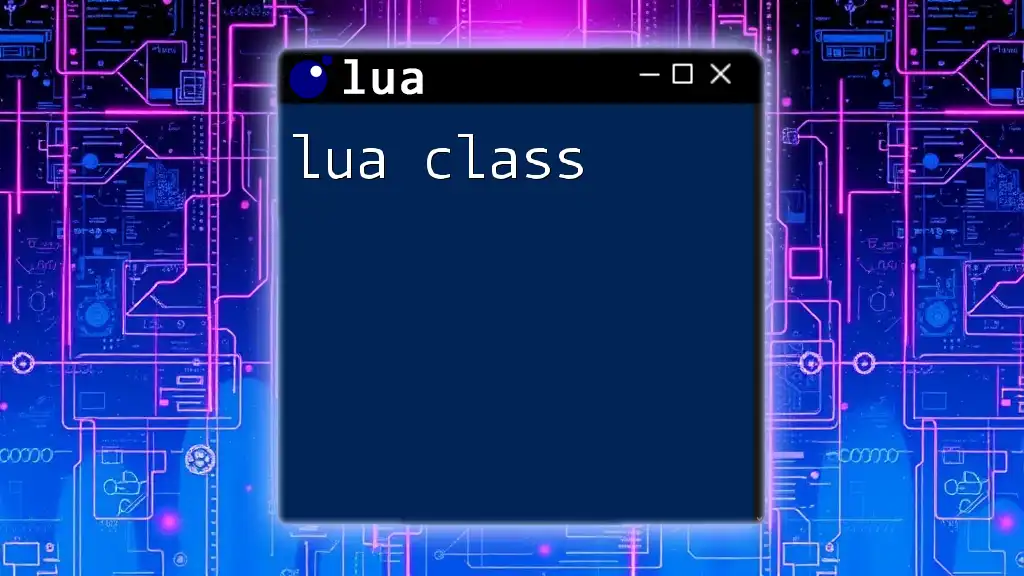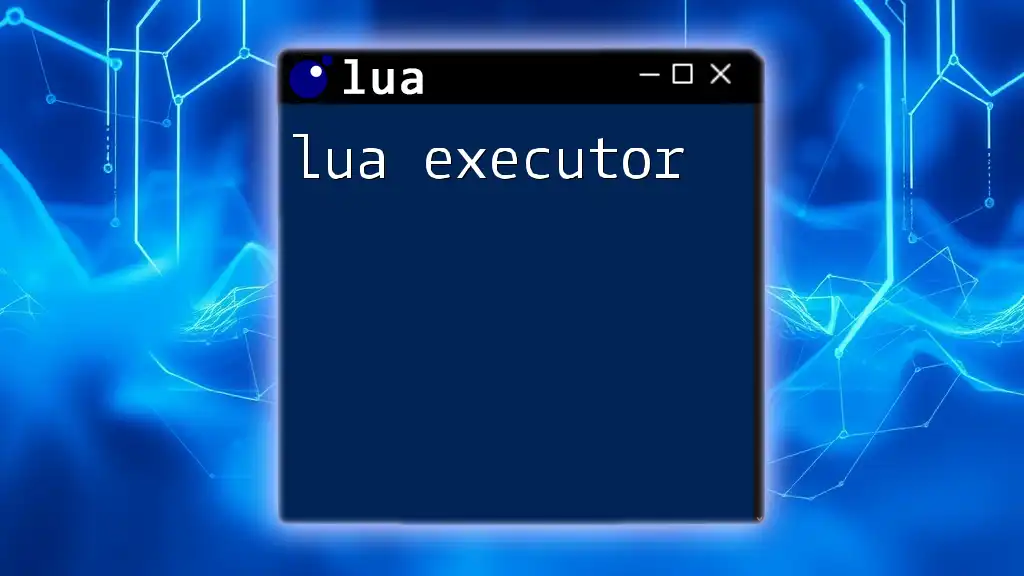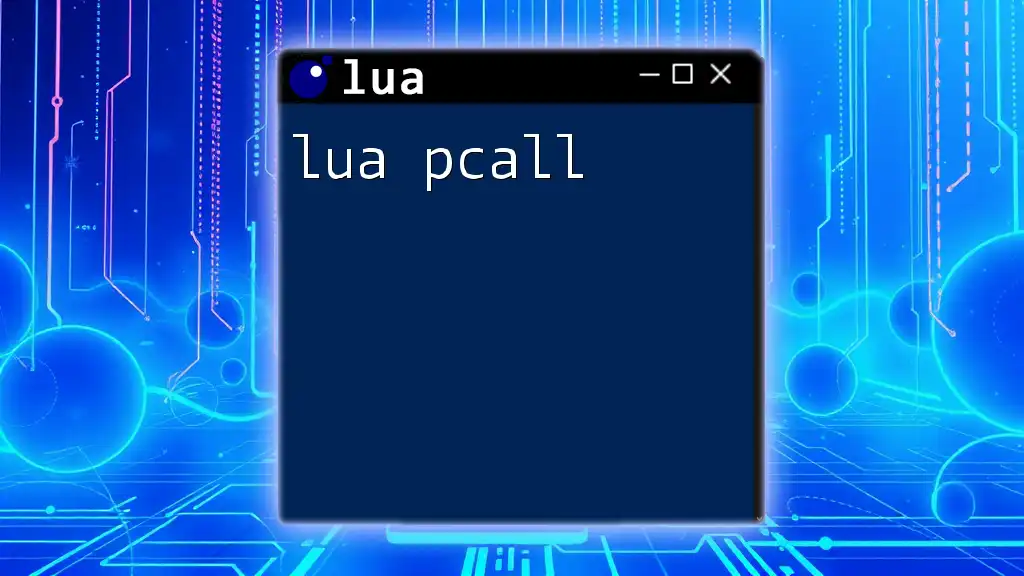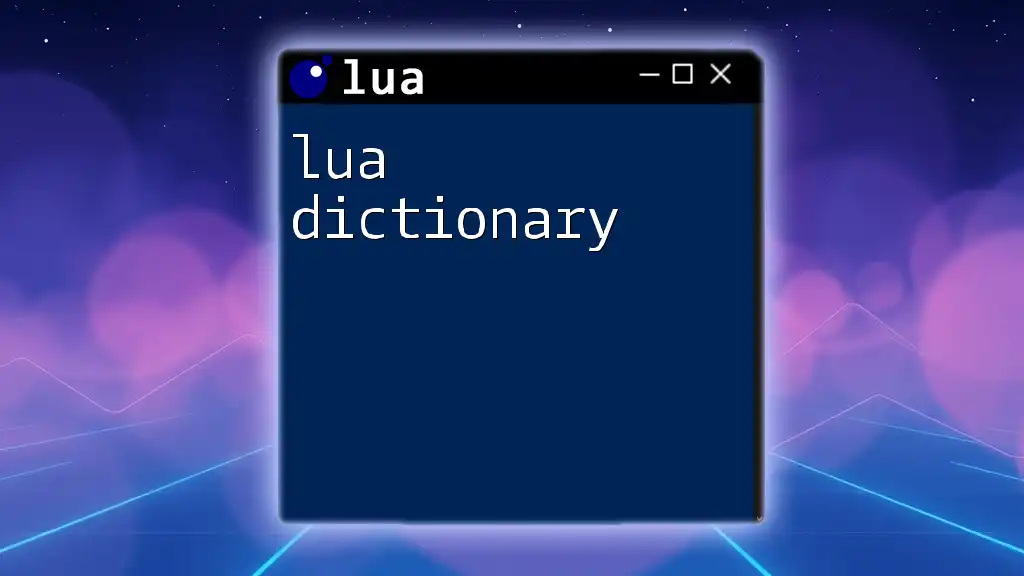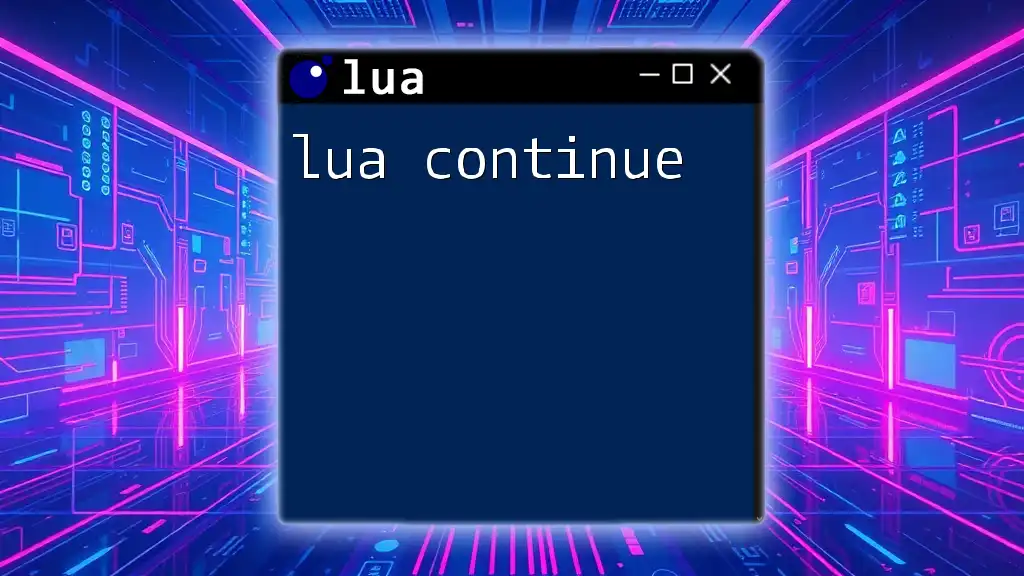Lua can be embedded in C programs, allowing for scripting capabilities and enhanced functionality by calling Lua functions directly from C code.
#include <lua.h>
#include <lualib.h>
#include <lauxlib.h>
int main() {
lua_State *L = luaL_newstate(); // Create a new Lua state
luaL_openlibs(L); // Open standard libraries
luaL_dostring(L, "print('Hello from Lua!')"); // Execute Lua code
lua_close(L); // Close Lua state
return 0;
}
What is Lua?
History and Development of Lua
Lua originated in Brazil in the early 1990s and has since evolved into a powerful lightweight scripting language. Developed by a team at the Pontifical Catholic University of Rio de Janeiro, it was initially designed for extending software applications. Over the years, Lua has gained popularity in various fields, particularly in gaming and web development, due to its efficiency and flexibility.
Core Features of Lua
Lua stands out for its lightweight nature, making it easy to embed in C applications. It's an extensible language, allowing developers to customize its functionalities through various libraries. Dynamic typing simplifies coding, while automatic memory management eliminates the need for manual memory allocation, reducing potential memory leaks.
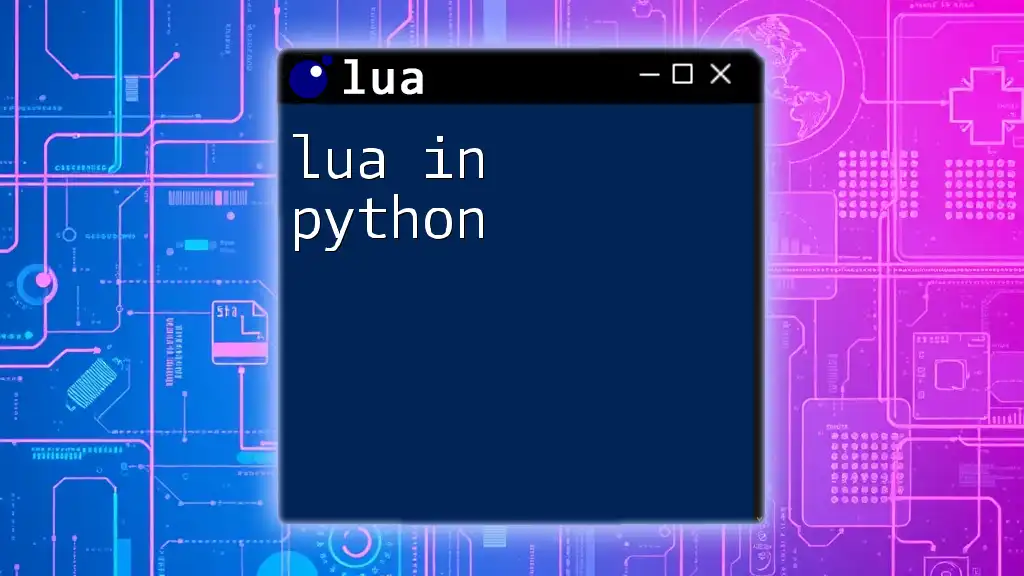
Why Integrate Lua in C?
Benefits of Using Lua with C
Flexibility is one of the primary advantages of combining Lua with C. Unlike static languages, Lua scripts can be modified and loaded on-the-fly without necessitating a recompilation of the entire C application, thus accelerating development cycles.
Scripting Capabilities enhance C applications significantly. By embedding Lua, developers can provide user-customizable scripts, enriching the application. For example, game developers can use Lua to create complex game logic that designers and players can modify without altering the core of the game engine.
Lastly, Lua's ease of use provides a high-level interface for scripting without overwhelming complexity. Lua's syntax is straightforward, making it user-friendly for beginners and efficient for seasoned programmers.
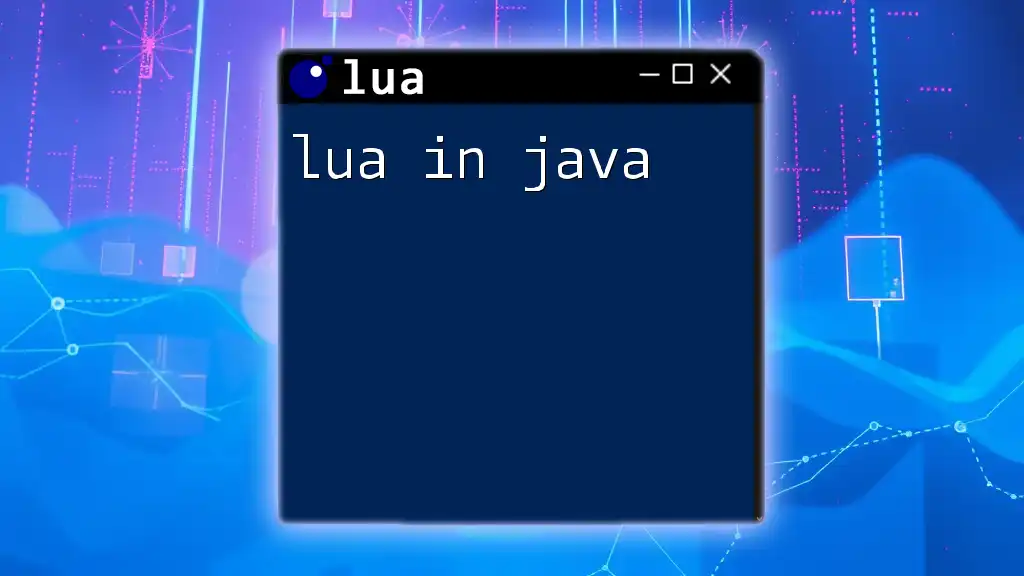
Setting Up Your Environment
Installing Lua
To leverage Lua in your C applications, begin by installing Lua. The installation process varies based on your operating system.
- Windows: Use Windows binaries available from the Lua website or through package managers like Chocolatey.
- macOS: Install Lua via Homebrew using the command `brew install lua`.
- Linux: Use your distribution's package manager, such as `sudo apt-get install lua5.x` for Ubuntu.
Consider using LuaRocks, Lua's package manager, to simplify the management of Lua modules. Install it similarly according to your OS specifications.
Compiling Lua with C
To utilize Lua in your C projects, compile it as a shared library. Here's how you can create a simple `Makefile` for compilation:
CC = gcc
CFLAGS = -I./lua -Wall
LDFLAGS = -L./lua -llua
TARGET = your_program
all: $(TARGET)
$(TARGET): main.o
$(CC) -o $(TARGET) main.o $(LDFLAGS)
main.o: main.c
$(CC) $(CFLAGS) -c main.c
clean:
rm -f $(TARGET) *.o
This structure allows you to compile your C project while linking the Lua libraries efficiently.

Basic Integration of Lua in C
Embedding Lua
To embed Lua into your C project, include the relevant Lua headers at the beginning of your C code:
#include <lua.h>
#include <lualib.h>
#include <lauxlib.h>
Next, you need to create a Lua state and open the standard libraries. The following example shows the initialization:
lua_State *L = luaL_newstate();
luaL_openlibs(L);
This initializes a new Lua state and makes the standard Lua libraries available for use in your application.
Running Lua Scripts from C
After embedding Lua, the next step is executing Lua scripts from your C code. Use the `luaL_dofile` function to load and run a Lua script:
if (luaL_dofile(L, "script.lua")) {
fprintf(stderr, "Failed to load file: %s\n", lua_tostring(L, -1));
}
This code snippet loads "script.lua", and if the file fails to load, it prints the error message. This integration permits your C application to leverage Lua’s scripting features seamlessly.
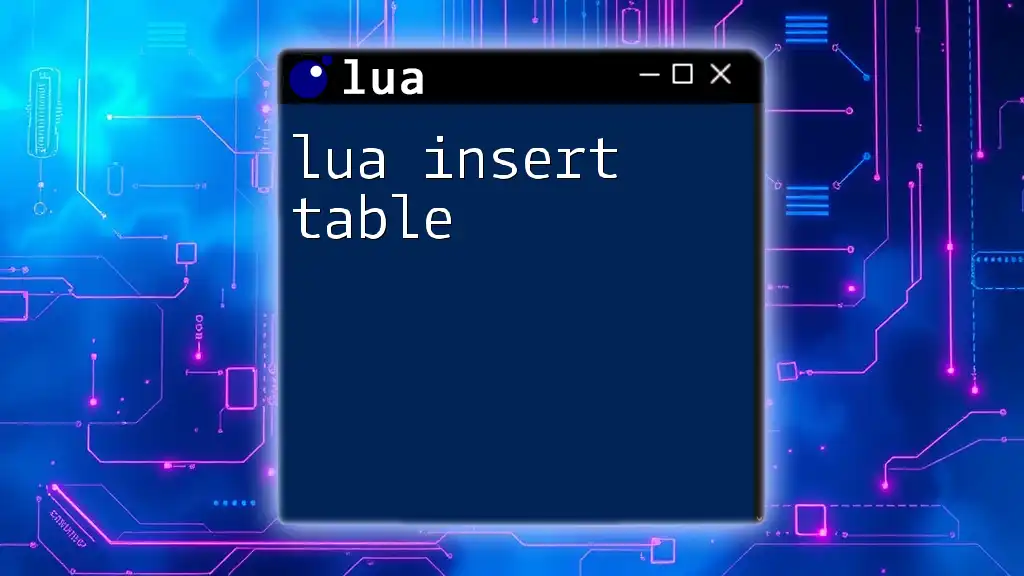
Calling C Functions from Lua
Registering C Functions
To call C functions from Lua, you'll first need to register the C functions in your Lua state. Here's how you can register a simple C function:
int myFunction(lua_State *L) {
int arg = luaL_checkinteger(L, 1);
lua_pushinteger(L, arg * arg);
return 1; // number of return values
}
lua_register(L, "square", myFunction);
In this example, `myFunction` takes an integer input, squares it, and returns the result. The last line registers this function under the name "square" in Lua.
Using Registered Functions in Lua
Once registered, you can call the C function from Lua as follows:
print(square(5)) -- Output: 25
This snippet demonstrates how Lua can invoke C functions, allowing for complex operations and logic.
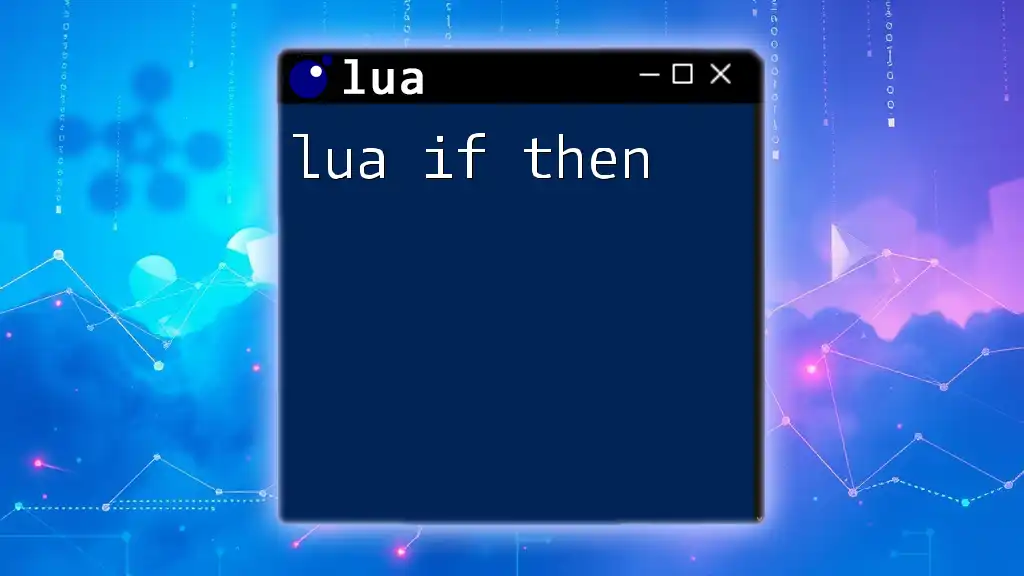
Lua State Management in C
Understanding Lua States
A Lua state is essentially an instance of the Lua interpreter. It's crucial because each state holds its own variables, functions, and execute environment. For robust applications, managing different states can lead to better modular design, allowing isolation of scripts.
Managing Multiple Lua States
If your application requires isolation or multiprocessing capabilities, you might need multiple Lua states. Each state can run independently, accommodating various configurations or user inputs without conflicting with each other.
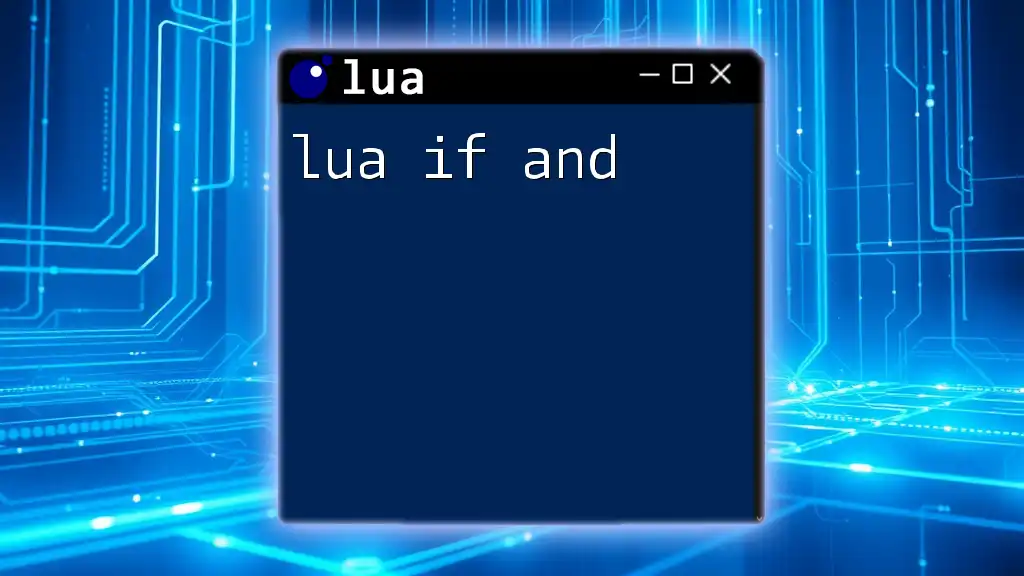
Debugging and Error Handling
Error Handling in Lua
Handling errors in Lua is straightforward yet critical for maintaining application stability. You can use the following approach to manage error scenarios:
if (luaL_dofile(L, "script.lua") != LUA_OK) {
const char *error = lua_tostring(L, -1);
fprintf(stderr, "Error: %s\n", error);
}
This code checks for errors when executing the Lua script and retrieves any error messages, which are then printed to `stderr`.
Debugging Lua from C
Debugging Lua scripts within your C application involves monitoring Lua's state and logging errors. You can utilize libraries like LuaDebug that provide hooks for debugging Lua scripts. These tools make it easier to trace back to the source of an error when something goes wrong.

Use Cases for Lua in C Applications
Game Development
One of the most prevalent use cases for lua in c integration is in game development. Game engines often embed Lua to handle game logic, allowing designers to tweak parameters without reprogramming the core engine. The flexibility provided by Lua enhances not only the development process but also the player experience through modifiability.
Web Development
In web development, Lua can serve as a lightweight scripting engine for server-side logic. Frameworks like Lapis or Sailor use Lua to harness rapid API development, benefiting from Lua's performance and simplicity.
Embedded Systems
Lua extends its utility into embedded systems, where performance and footprint are critical. The ability to modify behavior without recompilation is invaluable in a resource-constrained environment, making lua in c an ideal pairing for IoT devices.
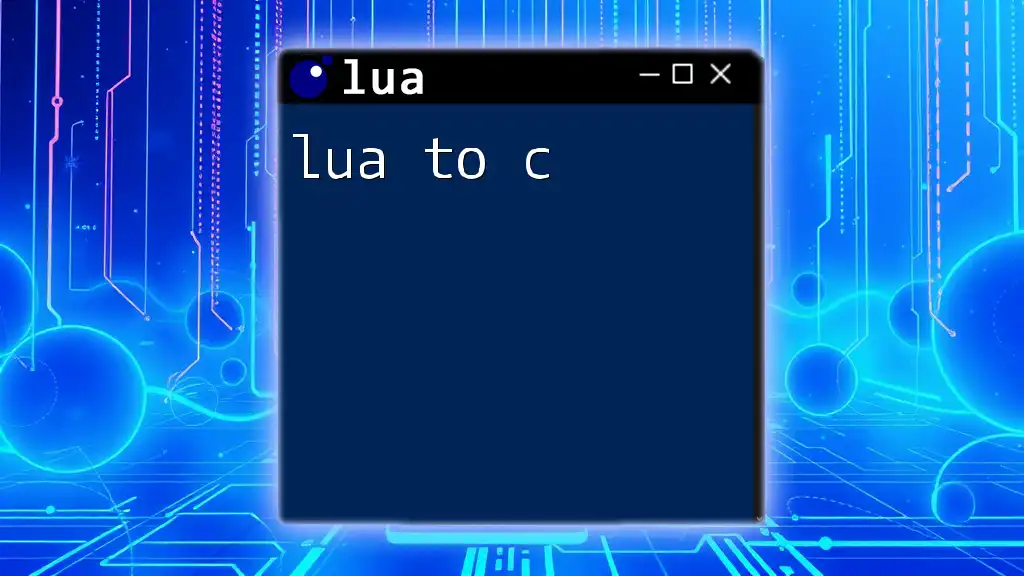
Conclusion
In summary, integrating Lua into C applications offers numerous advantages, including increased flexibility, robust scripting capabilities, and ease of use. By following the outlined steps to set up your environment, manage Lua states, and implement error handling, you are well on your way to creating powerful and adaptable C applications enhanced by Lua’s scripting prowess.
As technologies evolve, the integration of lua in c will likely grow, adapting to new applications and domains. Embracing this synergy can provide significant benefits in software development across various fields, marking a move toward more modular and efficient coding practices.
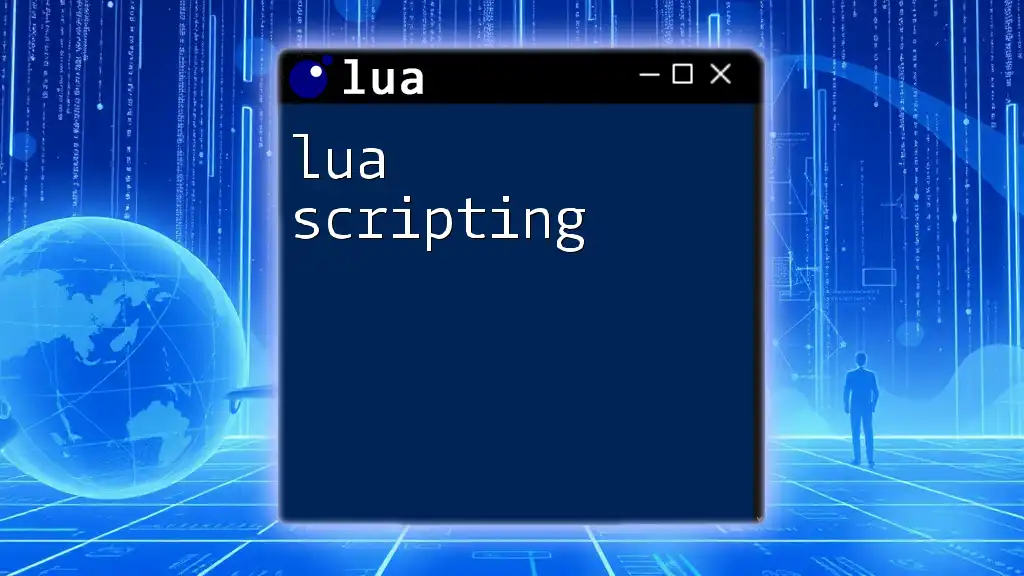
Additional Resources
For further learning, consider exploring the official Lua documentation for in-depth examples, engage with community forums for support, and seek out books and online courses to expand your understanding of Lua integration.

